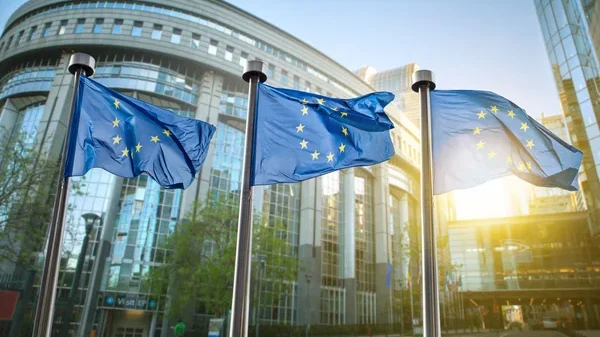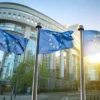Comment Editor Asher Gibson analyses the link between war and pandemics, and how these types of crises can be used to further nationalism within the public.
On the 75th Anniversary of VE day, Britons commemorated their relatives’ experience of a generation-defining national crisis, seeing theirs reflected within it. Wars and plagues have been aligned together since the two were named in the Book of Revelations as ‘horsemen of the apocalypse’, and institutional figures have been re-adopting this tradition.
The Queen’s declaration that ‘we will meet again’, a reference to Vera Lynn’s iconic war-time song, was described by the Telegraph as ‘the monarch [invoking] the Blitz spirit in a message of hope to the nation.’ Similarly, across the Atlantic, Donald Trump declared to the press that ‘all of American society is engaged and mobilised in the war against the invisible enemy.’ Nation-states are describing the pandemic with war-like terms, and this could have big implications for breeding nationalism in the public thereafter.
Johan Galtung argued that nationalism is constructed, in part, out of a belief in shared ‘glory’ and ‘trauma’. National glory and trauma often come from war, but a pandemic and the process of ‘defeating it’ could be a similar source. Both lead to a massive loss of life and call for individuals to sacrifice their life, liberty, and labour – to various degrees – for the sake of the wider community.

Tomb of the Unknown Soldier in Washington DC ©SyndramDesigns @ Pixabay
Nationalist values are also often immortalised by monuments. ‘The Tomb of the Unknown Soldier’, Benedict Anderson argued, is the objectification of the link between war and nation. These tombs appear worldwide and all that is known about the person inside each of them is that they share the nationality of the presumed viewer and that they fought and died for that nation.
No such monument exists, however, for the Spanish Flu (H1N1) – a pandemic comparable in international reach and threat to life as COVID-19. Laura Spinney wrote that, despite H1N1’s death toll, there ‘is no cenotaph, no monument in London, Moscow, or Washington, DC. The Spanish flu is remembered personally, not collectively.’
One does exist, however, for the AIDS epidemic. A flowing, cast bronze structure, resembling two men dancing, overlooks the British Channel in Brighton – the LGBT centre of the UK. Though the death toll of this epidemic was comparably much smaller than for Spanish Flu, it is memorialised.
The reason behind this lack of collective commemoration for global pandemics like Spanish Flu and COVID-19 may be that they are indiscriminate. They do not divide to conquer. The AIDS crisis disproportionately affected gay and bisexual men, as well as transgender people. So, it tore into a sharply defined, already vulnerable community. The same is not true of the Spanish Flu, nor of Coronavirus. They kill irrespective of nation or community, and so efforts to compete for ‘trauma’ points from it falter. We are necessarily in this together.
However, nations have inarguably been impacted differently and taken vastly different political approaches to control the virus. So, governments, the media, and the public are naturally drawing comparisons between them to determine what works and what their next steps should be. This is comparative politics, and it can be extremely helpful.
However, if we are not cautious, such an approach could lead to dichotomies being drawn between nations deemed to have responded ‘well’ and ‘badly’ to the pandemic. We must be sure to refer to governments and institutions, not to individual citizens, when discussing a ‘nation’s approach to COVID-19’. Failing to do this when criticising Beijing’s response to the pandemic has led to increasing hate crime against East Asian UK residents – individuals who are about as responsible for Chinese policy as the average Briton.
Nations may differ in cultural features and political response to COVID-19, but ultimately the virus does not care for the colour of our passports. This is a global pandemic which we, as individuals, are all vulnerable to. We will be better off remembering this and standing together upon its end than allowing ourselves to be arbitrarily divided for the sake of ideology.

















